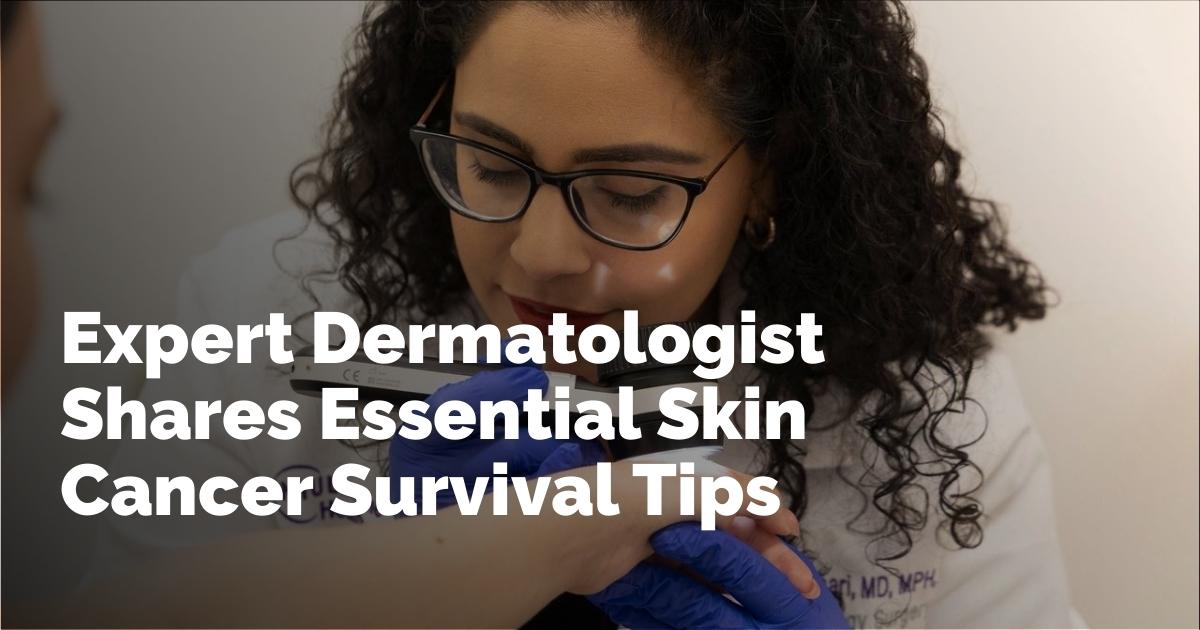A Personal Battle with Melanoma: Shaping Patient Care
The Unexpected Diagnosis
As a budding dermatologist, Nicole Golbari was keenly interested in skin cancer—a field allowing physicians and patients to work together, preventing and confronting a visible enemy. However, she never anticipated her own personal encounter with one of the most serious forms of this disease: melanoma. During her second year of dermatology residency, she sat not in her usual position of authority but rather in the patient’s chair. When a colleague advised her to have a mole on her arm biopsied, the results were shocking. What Golbari initially thought was a benign mole turned out to be a malignant melanoma, necessitating extensive surgery and testing to ensure it hadn't spread.
The emotional and physical impact of her diagnosis was significant. Describing the removal site as "shark bite"-sized, Golbari faced the sobering realization of a diagnosis she had dedicated her career to fighting against. This encounter with skin cancer has since provided her with a unique perspective and a deeper connection to the patients she treats at NYU Langone Health's Garden City center.
Insights from Experience
Golbari's personal battle with melanoma provides her with critical insights into the emotional and psychological dimensions her patients face. She understands the fear and skepticism that accompany diagnosis discussions and treatment plans. When she shares her story with patients, it becomes a bridge—connecting science with the human emotions at play.
Her journey has armed her with empathy and a powerful narrative that demystifies procedures and offers comfort. Whether discussing treatment nuances or preventive strategies, Golbari draws upon her own experiences to build a rapport with patients, making the path from diagnosis to treatment a shared journey rather than a solitary trial.
The Importance of Vigilance
Golbari emphasizes vigilance in monitoring skin health, underscoring how crucial it is to take note of changes such as moles that alter over time. A recommended practice involves using cell phone cameras to capture images of moles or skin marks periodically, creating a visual diary to recognize evolving changes. This practical approach serves as a vital ally in early detection, especially for those who may not fit the traditional profile associated with melanoma.
She often encounters misconceptions that melanoma primarily affects older white males. Her mission includes educating patients about the risks to other demographics, including those of Middle Eastern descent like herself. Melanoma does not discriminate by skin type or age—knowledge crucial for broadening the understanding of who can be at risk.
Effective Sun Protection
A well-rounded approach to sun protection is central to Golbari's practice. Dispelling myths around tanning, she stresses there is no such thing as a "safe tan." Despite societal preferences for bronzed skin, the risks associated with sun exposure far outweigh the aesthetic appeal. Nearly 70% of adults report protecting themselves from the sun, yet intentional tanning is still prevalent, particularly among women and younger adults.
Golbari advises on sun safety protocols, emphasizing sunscreen use with at least SPF 30 and UV protective clothing, especially for children. Her own son embodies the advice she gives to her patients—sun exposure is minimized right from infancy. The efficacy of sunscreen lies not only in its SPF but also in regular reapplication, especially on often overlooked areas such as the backs of hands, necks, and ears.
Educating for Prevention
A significant aspect of Golbari's practice involves debunking long-held beliefs and educating her patients on preventive measures against skin cancer. She acknowledges the role early sun exposure plays in elevating risks later in life, thus advocating for protective measures from a young age.
While older adults increasingly adopt sun-safe behaviors, younger generations still grapple with the lure of tanning, exposing themselves to potential long-term damage and health issues. Golbari's proactive stance in patient education seeks to shift cultural perceptions, emphasizing wellness over aesthetics.
A Lifelong Commitment
In the aftermath of her melanoma encounter, Golbari has committed herself to a lifelong educational mission. Her unique perspective as both a specialist and a survivor enables her to advocate for comprehensive skin cancer awareness. Her practice becomes not just a place of treatment but also a hub for informed discourse on skin health and cancer prevention.
By harnessing her personal experience and professional expertise, Golbari remains a significant figure in the dermatological field, one whose journey inspires both hope and cautious vigilance. Patients under her care gain not only a skilled dermatologist but a mentor—someone who intimately understands the intricate dance of fear, hope, and resilience that accompanies a skin cancer diagnosis.
출처 : Original Source

